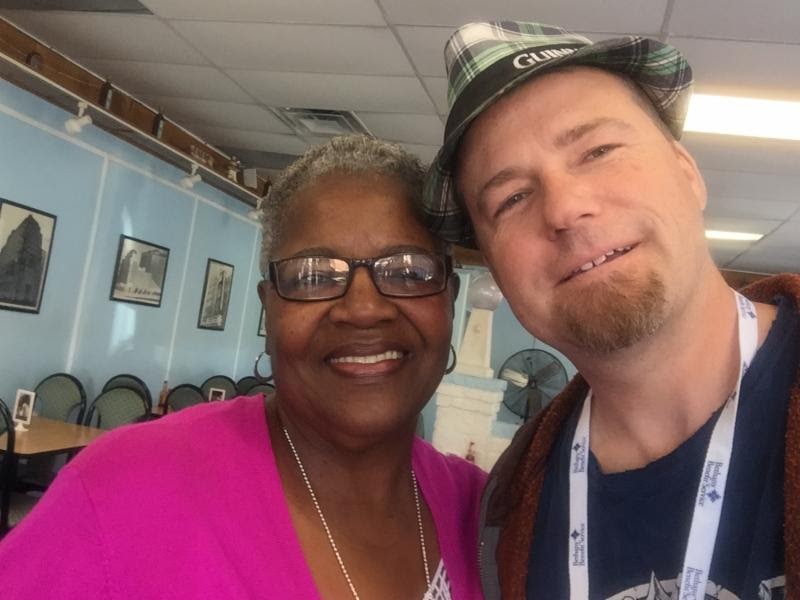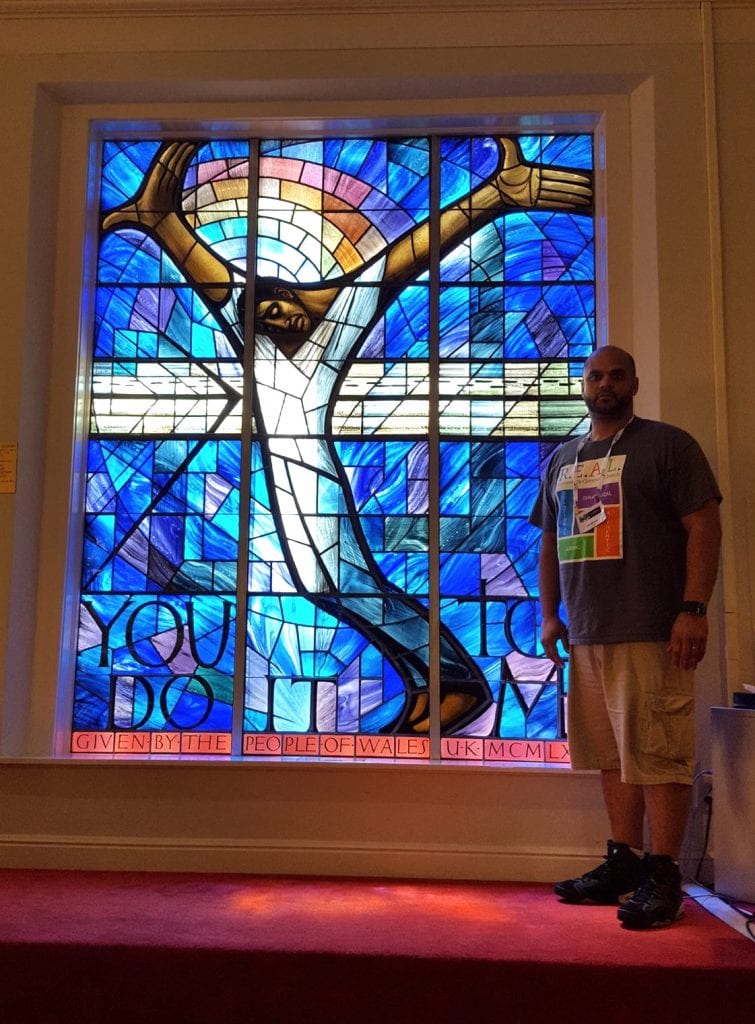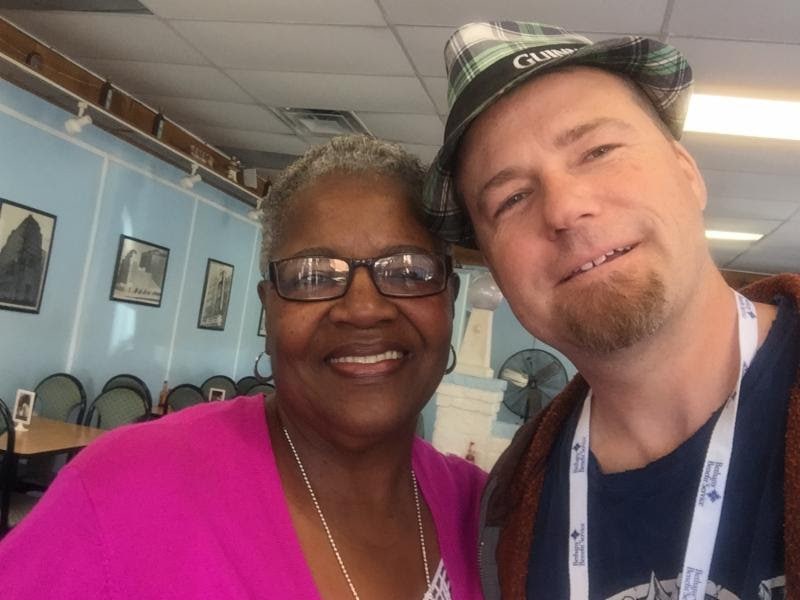
CHICAGO, IL (July 26, 2016) – Participants said they were especially nervous about participating in the latest Sankofa journey due to increased racial tensions that have recently rocked the country.
Andrew Morrell, who is planting REAL Community Covenant Church in Marion, Indiana, sent a request for prayer to his core group prior to the trip, which took place July 14-17. “I shared concerns that people may be heated and angry and that things might be said that are harmful, and there’s this tension in our country. I went into it wondering how bad might this get.”
Sankofa is a West African word meaning “looking backward to move forward.” During the four-day bus journey participants are paired with someone of another race as they travel through historic sites of importance to the civil rights movement. Sites visited include the 16th Street Baptist Church in Birmingham, Alabama, where four girls were killed and 22 other people were injured when Ku Klux Klan members bombed the church; the Edmund Pettus Bridge; the National Civil Rights Museum in Memphis, Tennessee; Common Ground Covenant Church in Jackson, Mississippi, and the Birmingham Civil Rights Institute in Birmingham, Alabama.
Morrell said, “I experienced everything from helplessness to hopefulness and every emotion and thought in between.”
The hopelessness came from, “just seeing the history of our country, where we come from and then where we still are today as people,” he explained. “Although it appears things have changed, things have gotten worse. We just hide what is being deliberately done to groups of people better and justify it.”

But he added that he also experienced a fresh sense of hopefulness because of the frank discussions that were possible on the trip.
Andrew Morrell stands beside a window donated to the 16th Street Baptist Church in Birmingham, Alabama, in memory of the 1963 bombing that killed four girls and injured 22 other people.[/caption]“The Sankofa journey is liberating,” he said. “We’re creating this space to talk and to admit our weaknesses and admit our faults, to admit our roles in all of this and yet know there is no condemnation for those who are in Christ Jesus. We’re able to say what’s really on our hearts, what’s really on our minds, and understand that this starts with me. It’s not me looking at somebody else. If we can all take that initiative and take that stance, then this will do some amazing things.”
“I was wondering if peoples’ emotions would be a lot more raw, but I was eager to get some historical context,” said Dennis Bourne, who attends New Community Covenant Church Bronzeville in Chicago.
He added, “The main thing was not feeling alone, because I’d met these 33 other people who were thinking about the same things. One of the other things I appreciated was debating with some of the people. It was like iron sharpening iron.”
Casey Franklin, pastor of Inversion Covenant Church in Denver, added that the trip’s timing made it all the more important for him. “This comes at a time when our nation is as divided as I’ve ever seen in my own lifetime. In light of recent events, Sankofa was even more critical to my own growth as a person and as a follower of Jesus.”
Franklin said the trip has given him more to think about how he engages in conversations. “As I have shared with my white brothers and sisters about this journey and what I learned, their response has been most telling. As I share about my own sense of brokenness and embedded bias as a beneficiary of our white structure, the most common response has been, ‘Yeah, but…’ followed by some explanation about how the African American community is at fault, or to blame or really just needs to get their act together.”
He added later, “One thing I have found already is that I must be careful how I bring this information back to my white brothers and sisters. I am realizing that I have to ‘slow drip’ the information to them. They can’t handle it all at once. Especially the implications. They can’t drink from the firehose, they have to have it drip slowly into their veins like an IV.”
Franklin urges others to go on the trip, emphasizing, “This is not just ‘civil rights’ or ‘black’ history. This is our collective history. This is the history of our nation, whether we like it or not.”
A half hour before the group arrived back at the ECC offices in Chicago, they learned about the murders of police officers in Baton Rouge, Louisiana, earlier that morning. It was another sign of just how far the country has yet to travel.
Topics: church and race














